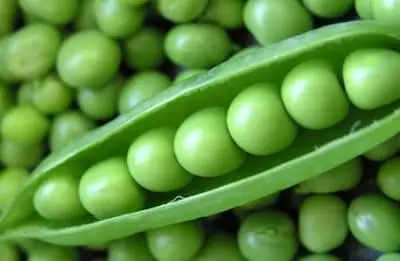‘Two peas in a pod’ are two identical items or people.
As alike as two peas in a pod
What's the meaning of the phrase 'As alike as two peas in a pod'?
What's the origin of the phrase 'As alike as two peas in a pod'?
This simile derives, of course, from the fact that two peas from the same pod are virtually indistinguishable. The phrase, sometimes given as ‘like as two peas’, is quite old and versions of it date from the the 16th century; for example, John Lyly used the phrase in Euphues and his England, 1580:
“Wherin I am not unlike unto the unskilfull Painter, who having drawen the Twinnes of Hippocrates, (who wer as lyke as one pease is to an other).”
Lyly’s use of ‘pease’ as the singular form was the norm in Tudor England. The word ‘pea’ came into use as the singular in the 17th century, with ‘peas’ as the plural, thus avoiding ‘peases’, which would have been something of a mouthful. This transition left ‘pease’ out in the cold and we now hardly use the form, except in the name of the dish of dried peas cooked to a mush – ‘pease pudding’. The pudding is itself now becoming less common as it has largely been superseded by ‘mushy peas’, which are essentially the same thing. Once that process is complete, ‘pease’ will be gone from the everyday language – a pity.
See other ‘as x as y similes‘.
Related phrases and meanings
Browse more Phrases
About the Author

Phrases & Meanings
A-Z
A B C D E F G H I J K L M N O P Q R S T UV W XYZ
Categories
American Animals Australian Bible Body Colour Conflict Death Devil Dogs Emotions Euphemism Family Fashion Food French Horses ‘Jack’ Luck Money Military Music Names Nature Nautical Numbers Politics Religion Shakespeare Stupidity Entertainment Weather Women Work
How did we do?
Have you spotted something that needs updated on this page? We review all feedback we receive to ensure that we provide the most accurate and up to date information on phrases.
